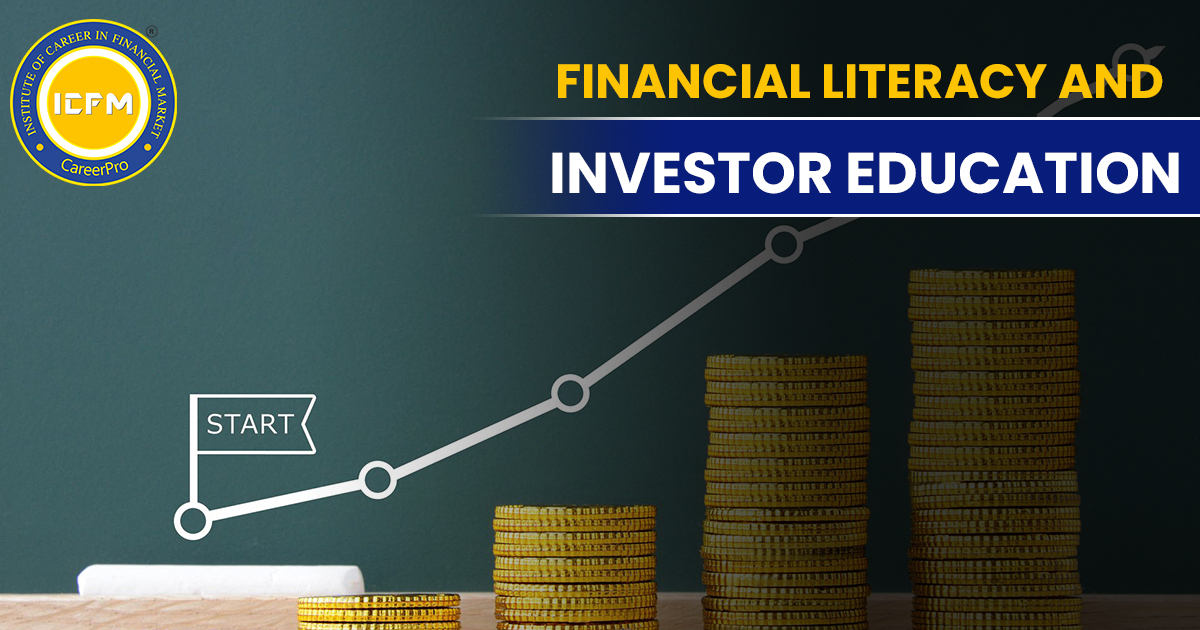There is no
shred of truth; it requires one to make informed and intelligent conclusions
about money matters in the present days of finance. When you are a blooming
investor or want to have a deeper insight, then surely, the primal thing to be
at your best is financial literacy; means, it has to be the basic building block.
This blog brings an overview of why financial literacy is important, key
components of financial education, and practical steps that can help you in
improving your financial knowledge.
Why Financial Literacy Matters
Financial
literacy is empowering in using one's money and investments. It gives the
understanding of basic concepts of saving, investing, and handling debt. The
reasons include:
1. Empowerment and Independence: Awareness about financial
principles provides people with a connection to the control of their own
financial future. The knowledge they gain helps them set realistic financial
goals, make informed choices, and remodel through proper planning for lifelong
financial security.
2. Risk mitigation: Financially educated people are
more prone to identifying and minimizing financial risks. They can prove all
the more capable of judging an investment opportunity, such as potential scams
and fraudulent schemes. They can protect themselves against financial pitfalls.
3. Helms Wealth: Financially educated individuals
find a way to maximize their investment through financial products. From
knowledge of compound interest to diversification of an investment portfolio,
financial literacy can be the base of building wealth and retaining it.
4. Economic Stability: The economy will have stability if
most of the people are financially literate. It will encourage responsible
borrowing, entrepreneurship and sustainable economic enhancement.
Key Features of Financial Literacy:
Financial
education is the category of education for the empowerment of people to manage
financial complexity, especially in the fields of personal finance and
investment. Important components include:
1. Basic Financial Concepts: Understanding income, expenses,
budgeting, and the importance of saving. The illustration in this concept is
usually drawn so that he/she can help individuals in effectively allocating
funds, spending with priority, and planning to meet future financial needs.
2. Principles of Investment: The concept of stock, bond and
mutual fund, and Exchange Traded Fund (ETF). What is meant by risk and return?
Asset allocation strategies; the impact of the concept of diversification in
investment creation.
3. Reconciliation of Debts: Everybody learns about incurring
debt in a responsible manner and the concept of interest rates and loan terms ;
it makes one understand what debt means in terms of its implications on the
financial health of a person, repayment techniques and the introductory concept
of building a nice credit card history.
4. Retirement Planning: Retirement savings; employer
supported plans like 401(k) accounts; IRAs; compounding interests; retirement
income needs assessment; and retirement income generation strategies.
5. Financial Markets and the Economy: An overview of financial markets;
key indicators of the economy like GDP and inflation, and how these affect
investments, and personal finance.
Some Practical Steps to Be Taken to Upgrade Financial Literacy
Improving
the financial literacy of any individual is a lifelong pursuit; the steps
above, therefore renders it very correct. In fact, these are active steps to
creating an increase in personal financial knowledge.
1. Teach Yourself: leverage online information, books,
courses, and workshops in the area of personal finance and investing. Generally
useful are pages such as Investopedia, Khan Academy, and financial literacy
programs that reputable institutions provide.
2. Give Financial Goals: Define short- and long-term
financial goals like putting down a payment on a house, preparing for an
education, or getting ready for retirement. Work out a budget that enables you
to support your goals of the revenue and track how well you perform over time.
3. Obtain Professional Help: Provide experienced financial
planners or investment advisors the opportunity to offer you top-notch,
personalized financial advice in accordance with your needs and circumstances.
They will guide you in formulating a financial plan and will stick with you
through tough financial decisions.
4. Prudent Financial Habits: Develop a reasonable financial
discipline in saving regularly, avoiding unnecessary debt, and reviewing
financial statement and investments on a regular basis. Keep abreast of
financial market and economic changes that may impact your overall financial
well-being.
5. Teach Others: Share the knowledge and experiences
you have gained on financial matters through making money. Family, friends, and
other community stakeholders promoting financial literacy within your circle
potentializes other people to make good judgment calls on financial issues and
develop resilience.
Conclusion
Financial
literacy is a journey attributed to transformation for the empowerment of financial
independence, the mitigation of risk, and the accumulation of wealth. You wield
the power to adopt prudent financial habits only when you gain financial
education, so you will be able to confidently navigate through today's
complicated financial world. Financial literacy is not about numbers; it is
about being equipped with the knowledge and skills to secure a brighter future
financially.









